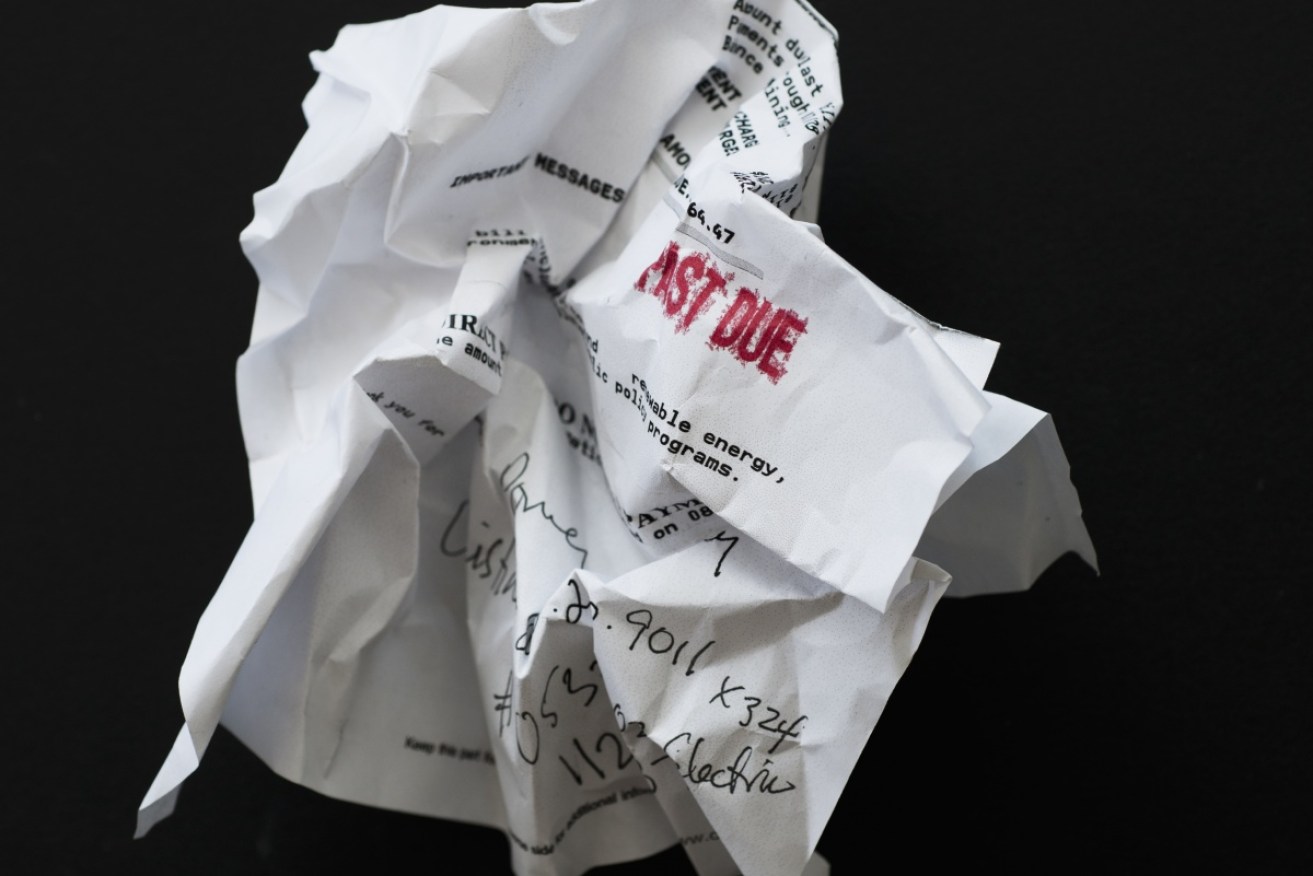More Australians at risk of missing crucial bill deadline

Don't ignore bills or your credit score will suffer. Photo: Getty
An estimated 2.86 million Australians are at risk of missing a crucial deadline for late payment of bills over the next 12 months – the highest number in four years.
In its latest report released on Friday, credit bureau Veda calculated that 17 per cent of the nation is at peril of consumer credit default, up 5 percentage points on last year.
The bureau came to this conclusion by running the credit scores and credit reports they have on file through a complex algorithm, which predicts future inability to pay based on recent difficulties.
The algorithm suggests we will struggle more with mortgage repayments as well as much smaller bills, such as mobile phone charges and electricity and gas.
“As a bureau, we’ve been around for more than 40 years, and we can see from the stats that past behaviour is a great indicator of future endeavours when it comes to credit risk,” Veda spokesman Izzy Silva told The New Daily.
The crucial deadline is 60 days overdue on any debt of $150 or more. Once this time limit passes, a ‘default’ is recorded on the debtor’s credit report, and their credit score plunges (the exact number of points lost varies).
Veda’s prediction that 17 per cent of the nation is at risk of a default is higher than it was in the company’s last three annual reports.

“It could be that an individual has either forgotten or on purpose not been able to pay a telecommunications bill or a utility bill, and if it passes the 60-day mark and is over $150, it goes on your record,” Mr Silva said.
Defaults matter because they lower a person’s credit score, and are recorded as blemishes on their full credit report. Banks and other financial institutions will be less likely to lend to a person who defaults.
Veda calculates credit history using a score out of 1200, which is a simple way for financial institutions to interpret how risky it is to lend to a person applying for a loan.
The score is broken down into the following rankings: 0-509 (below average), 510-621 (average), 622-725 (good), 726-832 (very good) and 833-1200 (excellent).
The average credit score in this year’s Veda report is 757, down 14 points on last year. The highest average score was in NSW’s Sutherland region, while the lowest was in Queensland’s Logan-Beaudesert region.

A credit card can boost your score, but only if you repay on time. Photo: Getty
Queensland was also the state with the highest default risk of 20 per cent, a full six points worse than the Australian Capital Territory.
Fiona Guthrie, CEO of Financial Counselling Australia, said the Veda figures should be treated with caution, as they were generated by a for-profit company.
But she confirmed that financial counsellors across the nation are seeing anecdotal reports of rising mortgage stress and utility debt.
“In the last five years, utility debt has been an increasing problem because utility prices have increased so dramatically. We’ve got people now who can’t even afford to pay for the access charge, let alone the usage.”
What to do if you’re at risk
- Negotiate a payment plan with your credit, Ms Guthrie recommended. “It’s really stressful, and sometimes when things are stressful it’s very hard to deal with them because we feel we don’t have any options. But if you act early and talk to your creditor, you’d be surprised what arrangements you might be able to come to. They will try to help you.”
- Talk to a free and independent financial counsellor on 1800 007 007
- Contact the applicable ombudsman, which might be the Financial Services Ombudsman, the Telecommunications Ombudsman, the Credit and Investments Ombudsman, or a state-based energy and water ombudsman
- Check your mail. Before a default can be recorded on your credit history, the creditor must by law send you several letters
- Remember that, by law, every Australian has a right to access their credit history for free once a year. So don’t pay if you don’t have to








